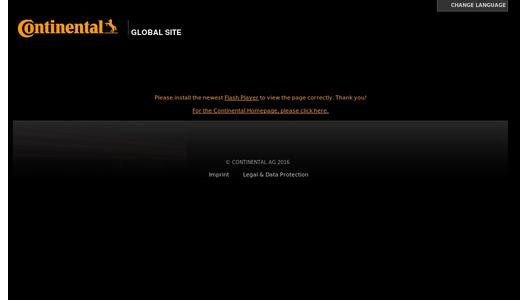- Fragmentation: even large companies have only very small market shares
- Industry sees a need for action, particularly in matters of environmental protection
- Continental Mobility Study makes clear that intense cost pressure leaves little room for innovations with lasting effect
In fact, freight transport is experiencing dramatic growth. In 2010, approximately 265 billion metric ton-kilometers were moved on the road in Germany, and experts anticipate that this figure will rise to more than 370 billion by 2050. One reason for this, say the experts, is the enormous growth in Internet commerce. With approximately €132 billion in online sales generated in Europe in 2013, a total of roughly €250 billion is expected in 2017 – almost doubling in just five years. In Germany, sales in online retail are projected to rise from almost €53 billion in 2015 to €73 billion in 2017.
According to the experts surveyed, the Internet shipments are also becoming increasingly small-scale, while customers are demanding the shortest possible delivery times. Furthermore, freight transport – that is, import, export, and through transport – is growing, as are the distances between suppliers and recipients. However, the increase in freight and delivery transport by road runs counter to stricter environmental specifications. CO2 emissions produced by freight traffic on the roads amounted to approximately 1.1 billion metric tons worldwide in 2010. Experts project that this figure will quadruple to roughly 4.5 billion metric tons by 2050. The logistics experts therefore agree that applying a strategy of "keep doing what we're doing" is not possible in the long term. "There needs to be a revolution in the industry if development continues as it is doing," says one study participant.
In fact, almost the entire industry is working to capacity as a result of tough competition and, in its own view, has barely any resources to commit to innovation. Only 16 percent of the drivers in ther international long-distance haulage receive special incentives when driving especially fuel-efficient. The experts say that the situation is particularly difficult for small and medium-sized transport companies. Although they are aware of the necessity of connectivity and digitalization, they are under such pressure in their day-to-day business that they have neither the time nor the budget to give much thought to the future or to plan investments. They have little room for creativity anyway; moreover, innovations need to pay off within just one or two years if companies are to survive the competition.
They also have to deal with competition from global players in online commerce, which are establishing their own logistics organizations, as well as dealing with the problems that many small and medium-sized enterprises are having finding dedicated, forward-thinking corporate successors. "This trend will intensify. The big companies will get bigger, because their costs look better and they can cross-subsidize divisions. The big companies are also more open to innovations and are better able to adapt them", surmises a spokesperson for an association.
Meanwhile, the experts surveyed believe that competition in Europe is influenced primarily by participants from central and eastern European EU states. "In some cases, scandalous working conditions prevail, with a minimum wage of €2.80. This all relies on EU legislation. One significant problem is the free movement of services within the EU, which does not include any obligation to maintain a branch in a state, nor is it bound to any such obligation," comments one industry expert. According to the expert, this also leads to a situation in which more highly qualified and specialized drivers are used for domestic and regional transport, while the trend is the opposite in long-distance haulage.
Furthermore, in Germany, there is a transport infrastructure that receives good grades from only 9% of logistics experts surveyed in the study. More than 90% say that roads, bridges, ports, and railways in Germany are not well developed.
With the "Mobility Study 2016 – The Connected Truck," the leading technology company Continental is presenting what is now its fourth mobility study. The market and social research institute (infas) surveyed logisticians, forwarding agents, fleet operators, and long-haul drivers in Germany and China. The focus was on the challenges faced by the logistics sector as a result of digitalization and connectivity.
Facts and figures regarding freight transport on German roads
- Germany has one of the world's densest freeway networks. At the beginning of 1995, the total length of this network was approximately 11,000 kilometers; by 2015, it had grown to more than 12,900 kilometers. Within Europe, only Spain has a longer freeway network. Source: http://de.statista.com/statistik/daten/studie/2972/umfrage/entwicklung-der-gesamtlaenge-des-autobahnnetzes/
- There are 38,917 kilometers of federal highways in Germany. Source: http://de.statista.com/statistik/daten/studie/36486/umfrage/strassenlaenge-der-bundesstrassen-seit-1950/
- In the global ranking of countries with the highest road quality, China is in 11th place and Germany 13th. The country with the best road infrastructure is the United Arab Emirates, with Guinea bringing up the rear. Source: http://de.statista.com/statistik/daten/studie/157788/umfrage/ranking-der-laender-mit-der-hoechsten-qualitaet-der-strassen/
- Transport output in road haulage in Germany amounted to roughly 474 billion metric ton-kilometers in 2015. Source: http://de.statista.com/statistik/daten/studie/12243/umfrage/transportleistung-je-verkehrstraeger-in-deutschland/
- In Germany freight transport produces approximately 30% of total CO2 emissions caused by traffic (2013). Source: http://de.statista.com/statistik/daten/studie/13150/umfrage/co2-emissionen-im-deutschen-personenverkehr/
- In June 2016, trucks covered around 2.9 billion kilometers on toll roads in Germany. Source: http://de.statista.com/statistik/daten/studie/309509/umfrage/fahrleistung-monatlich-mautfahrzeuge-deutschland/
- When it comes to logistics, Germany is the European champion. In 2014, the industry generated €235 billion in sales – almost twice as much as France's logistics industry, which is second on the list (roughly €125 billion). Source: http://de.statista.com/statistik/daten/studie/72734/umfrage/volumen-vom-logistikmarkt-in-europa-nach-einzelnen-laendern/

